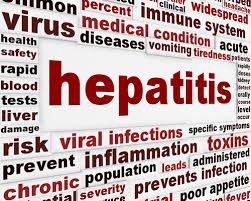 file photo
file photo
Ghana on the 28th of July marked the fifth World Hepatitis Day and launched the Prevention and Control of Viral Hepatitis Policy in Accra.
The event went under the theme: “Prevent Viral Hepatitis, Know the Risk — Act Now,” and was joined by the World Health Organisation (WHO) and other countries, who called for a renewed effort to prevent Viral hepatitis.
Viral hepatitis is the inflammation of the liver caused by specific viruses that primarily attack the liver. The common types of Viral hepatitis are A Virus (HAV), Hepatitis B Virus (HBB), Hepatitis C Virus (HCV), Hepatitis D Virus (HDV), Hepatitis E Virus (HEV).
The hepatitis B virus (HBV) and C virus affect close to 400 million people worldwide. Ghana belongs to the group of countries, where the prevalence of chronic hepatitis B infection is about eight per cent high and that of hepatitis C virus is also five to 10 percent high.
One out of ten Ghanaians, that is, 2.5million people get infected with hepatitis each year and people must be informed and learn how to prevent the disease, Dr Erasmus Abongo, a member of the Hepatitis Board cautioned.
The goal of the policy is to give direction to the provision of the quality-driven, results-orientated, client-focused and affordable viral hepatitis prevention and control services in order to improve the health status of all people living with, and at risk of the Viral hepatitis in the country.
For this reason, the Ministry of Health (MoH) constituted a team of technical experts who tirelessly worked and had consultative review meetings with all key stakeholders who matter to develop the first-ever national policy on the Prevention and Control of Viral Hepatitis in the country.
There are effective tools available to prevent Viral hepatitis infection, and these include hepatitis B vaccination, surveillance, education, screening, and treatment. However, the challenge is to build the capacity to extend these interventions countrywide.
The document focuses on areas, including surveillance and response, laboratory diagnosis, prevention of Viral Hepatitis, advocacy, communication and social mobilisation.
The rest are treatment, care and support, research, regulation, implementation framework, monitoring and evaluation, resources mobilisation and financing.
Dr Badu Sarkodie, Director, Public Health Division, Ministry of Health, however, called on all stakeholders to contribute to achieving the goal of reducing morbidity and mortality due to Viral hepatitis to the barest minimum in Ghana.
Mr John Appiah, Director of Administration, Ministry of Health, who launched the policy document, said nearly 500 million people in the world today were living with chronic hepatitis B and C virus which cause over one million deaths annually.